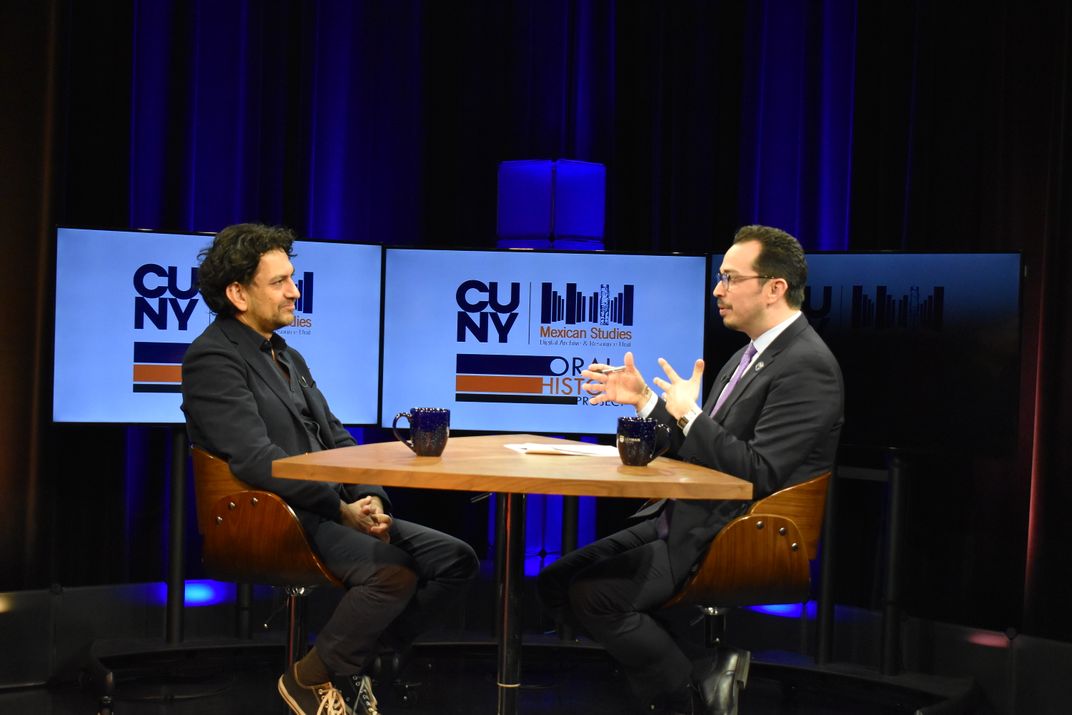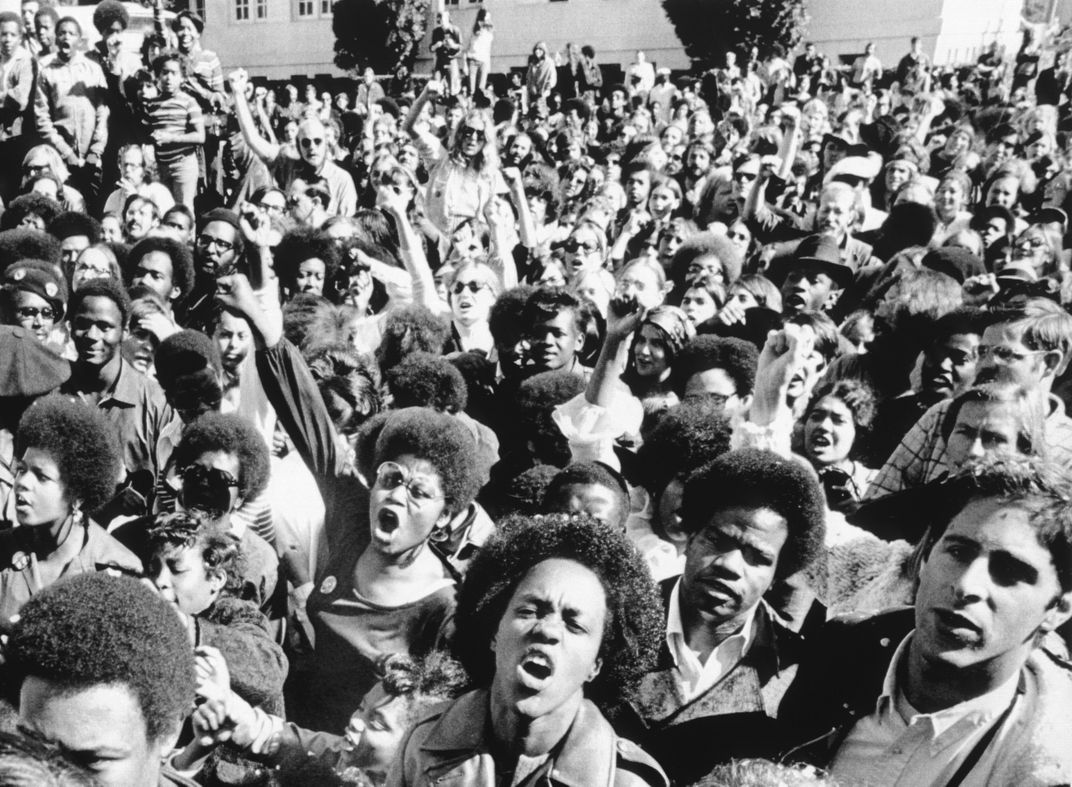How Oral History Projects Are Being Stymied by COVID-19
As the current pandemic ravages minority communities, historians are scrambling to continue work that preserves cultural heritage
/https://tf-cmsv2-smithsonianmag-media.s3.amazonaws.com/filer/72/ea/72eaa22a-72d6-40b1-837f-409f87a0ae33/image001.jpg)
Diana Emiko Tsuchida lost her grandfather at age 8, long before she was able to understand the hardships he experienced as a Japanese American citizen incarcerated by the U.S. government during World War II.
Not one to let another opportunity slip by, Tsuchida interviewed her father, who was also interned as a young boy, about his time at the camps. Inspired by the conversations with her dad, she founded Tessaku, an oral history project that interviews Japanese American survivors of the camps, to ensure that future generations would be able to hear about that experience from those who lived it.
But now, with the COVID-19 pandemic shutting down much of the nation and threatening older populations most of all, her work, and that of many other oral history projects, has come to a halt. Many of the subjects of these projects belong to populations, including the African American and Latino communities, that have borne the brunt of the coronavirus outbreak in the United States. Historians and activists like Tsuchida must now grapple with how they can forge ahead with existing projects in the face of a pandemic that shows no signs of letting up.
A few years ago, Tsuchida interviewed camp survivor Tadashi Tsufura over the phone. He spoke calmly, even slowly, she recalls. Tsufura had told his story before, but he never sounded scripted. “He had a hint of sadness in his voice,” she said. She hung on to every word he uttered. The call lasted for two hours; she didn’t notice.
This April, she learned that Tsufura died from COVID-19; she would never have the chance to meet and talk with Tsufura in person.
Kimiko Marr, a friend of Tsuchida’s, co-founded a California-based group that organizes trips to memorial sites that brings together younger Japanese Americans with survivors. She was hopeful that her work could continue even even after the virus began to spread in California, but realized that a trip could lead to an outbreak. “I pulled the plug because I just didn't want to risk any elders' lives,” she says.
Marr and Tsuchida aren’t alone. “Different oral historians are approaching things in different ways. Some have just stopped doing interviews and some are continuing through the use of digital technology,” says Rachel Seidman, the director of the Southern Oral History Project at the University of North Carolina, Chapel Hill. Others, including the Smithsonian, view the virus itself as a historically significant event to be memorialized as collective memory. But oral historians are about much more than just recording moments that will appear in textbooks years later. For disadvantaged communities in particular, it's a way to point out their inherent worth in the face of systemic racism.
“Our focus is about the contributions that these people have given to the community,” says José Higuera López, the director of the City University of New York’s Mexican Studies Institute at Lehman College. Higuera also oversees the Mexican Oral History Project that focuses on Mexican Americans in New York City, a group that has suffered greatly from coronavirus. According to data from the city government, Latinos, as well as African Americans, are twice as likely to die from COVID than whites.
“We’re trying to see if we can [continue our work] virtually through video conference,” he says, adding that they face challenges including technological fluency.

Different communities also have different cultural norms and cues which can present added challenges. “It's a process, especially with Latinos,” said Marta Martinez, the director of the Latino Oral History Project in Rhode Island, where Latinos make up 16 percent of the population. Martinez normally would have spent the past few months meeting participants and their families, establishing a relationship before she would begin interviewing elderly community members. After the pandemic struck New England, she scrambled to continue her work by asking these families for help. “I said, ‘Do you think you can give your papá or your abuelo a quick 101 on how to use either Skype or Facebook,” she recalls.
All the practitioners interviewed saw video conferencing and phone calls as stopgap measures at best. “Video interviews are, in this case, probably a necessary accommodation but can never really replicate the kind of intimacy that happens when you're sitting in a room with someone face to face,” says Seidman. While Zoom can be a useful tool, it can be tricky to use, especially for non-tech savvy users, and makes establishing a rapport harder. But for Robert P. Robinson, the crisis has also presented an unintended benefit.
Robinson is a Ph.D. student at CUNY and is currently working on a dissertation about the Black Panthers’ Oakland Community School. The school’s operating philosophy was rooted in community-based solutions towards systemic racism. That extended into policing, which the organization saw as inherently repressive. That platform is now gaining renewed attention due to the killing of George Floyd by police officers in Minneapolis. Robinson depends a lot on oral histories, many of which he has done himself. He had tracked down, and interviewed, former teachers, personnel and students but had stopped right before COVID-19 hit to finish up his dissertation. He planned on resuming the interviews in August, but the pandemic has made that highly unlikely.
Robinson also planned on visiting archived materials at Stanford University that are crucial to his work, but they are not available over the internet. The trips to Oakland from New York, however, can be expensive for anyone, no less a historian on a student income; video conferencing and phone calls gives him the ability to keep in contact with participants. “There's an opportunity to connect to folks remotely, which saves me a significant amount of money,” says Robinson.

But Seidman has also cautioned that the ability to more easily connect with participants needs to be weighed carefully from an ethical standpoint. She said that reaching out during a crisis like today’s can harm a participant’s emotional state. “We're not trained to help someone, deal with trauma. And that's not really the purpose of an oral history interview… Some people would argue it is possible to actually do harm.” Robinson worried over his subjects, since many of them are elderly. He doesn't know if any of them have died due to COVID-19, but wants to interview four more, all of whom he says, are at high risk.
Kimiko Marr, for her part, felt lost at first; meeting people would be out of the question. But what if there was a way to bring together survivors and those who wanted to learn the history of the incarceration camps? “I just thought, we should do something virtual. And we should try to get all the camps involved,” she says. Marr began to plan a virtual pilgrimage titled Tadaima, Japanese for “I’m home.”
“When we first started telling people this idea, I know they thought we were insane,” says Marr. “And people still do.”
Yet sure enough, they began to come around. The planned event, scheduled to begin June 13, will include webinars, performances, and survivors recounting their experiences through webcams.
When Tsuchida thinks back on her phone interview with Tsufura, she remembers him occasionally cracking a joke, breaking up the somber tone. She kept in touch with him, but ponders wistfully about what could have been. She imagines doing what Marta Martinez does when she meets with participants in Rhode Island. “I wish though that I had gotten the chance to meet him just once and have lunch with him in New York, and give him a hug.”